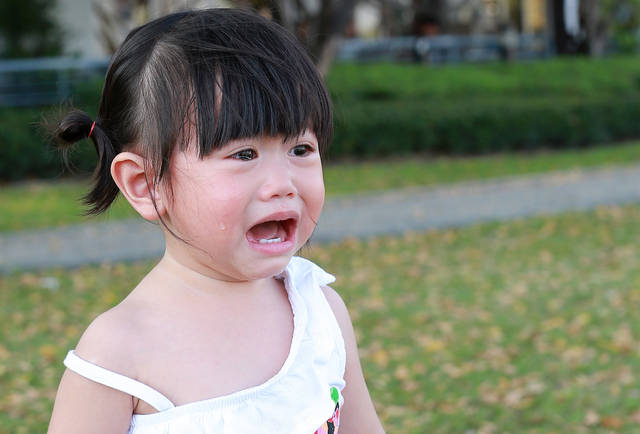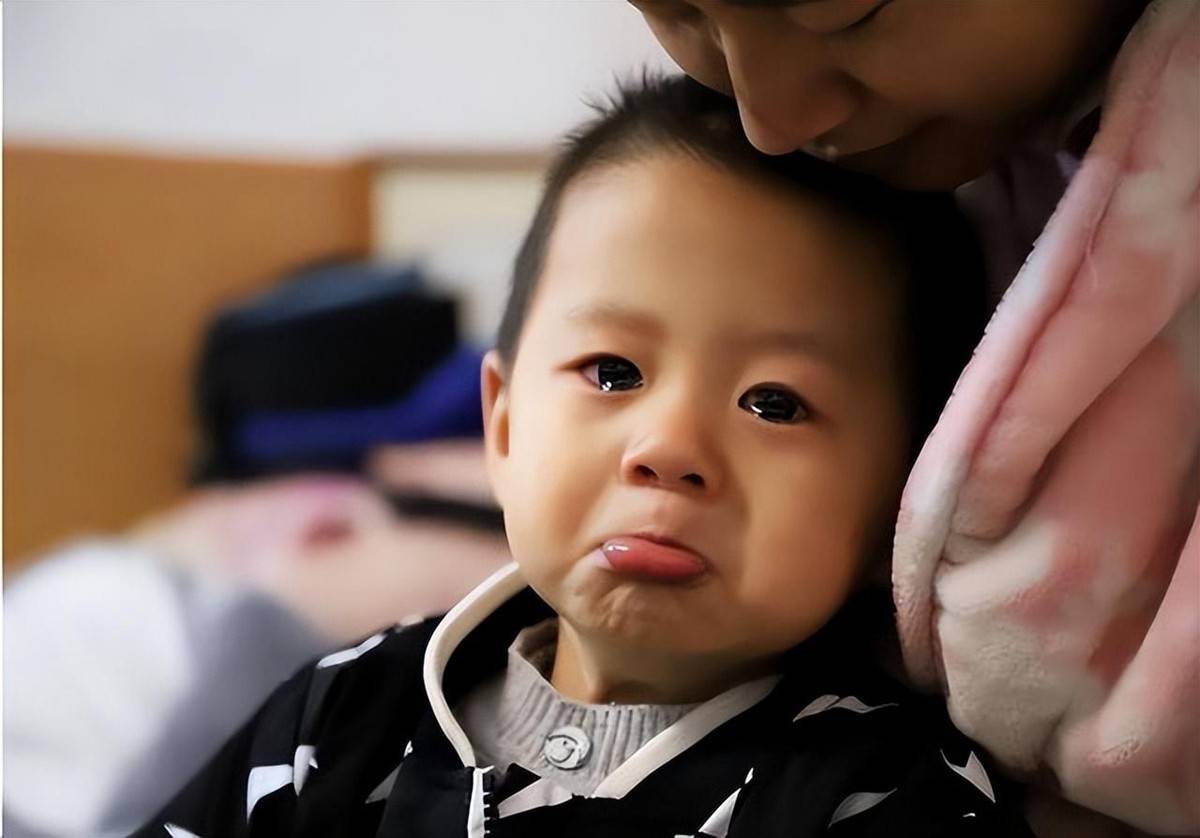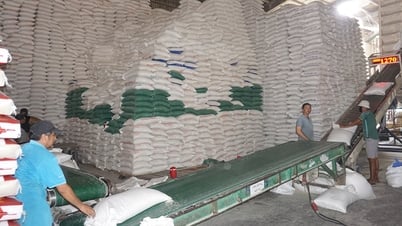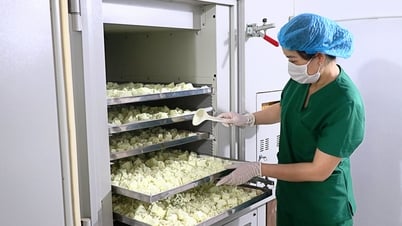Do not ignore these symptoms in your child.
Why there are good children and bad children is a question that many parents ask when observing their children's development. This difference is not simply the result of instinct or innate personality, but also depends on many factors such as theeducational environment, adult guidance, and the experiences that children receive throughout the growing up process. Good children are often known for their positive behaviors, respect for others and compliance with rules, while bad children may show opposition, impatience and lack of discipline. Understanding the underlying causes of this difference helps us have appropriate methods to educate and support children's comprehensive development.
Below are 5 signs that your child is likely to become "spoiled" in the future. If parents do not prevent it early, they may end up crying out of helplessness and despair.
1. Children often lie
Children who lie are often reluctant to take responsibility for their actions and are not willing to face up to their actions. This reflects a lack of ability to distinguish right from wrong and a lack of moral training. If not corrected in time, the habit of lying can become ingrained and affect a child’s ability to form healthy relationships, as well as their long-term social and career potential.
What parents can do: When children lie frequently, parents need to find the right way to educate them. First and foremost, it is very important to create an environment where children feel safe to tell the truth. Parents should take the time to talk to and educate their children about the value of honesty and the negative consequences of lying. They need to be good role models of honesty for their children, which includes keeping promises and not lying in front of them.
In addition, parents must also discover and understand the reasons why their children lie. Praising children for each progress is a good way to encourage positive behavior. Accompanying and supporting children, understanding and solving the problems they are facing will help them give up the habit of lying.

Children who lie often are a manifestation of avoiding responsibility and unwillingness to face up to their actions. (Illustration photo)
2. Children do not respect others
Children's lack of respect for others can be seen as a potential sign of future "retribution" because this behavior often reflects a lack of personality education and life skills. When children do not learn to respect others, they are likely to develop selfishness, disregard the value of relationships, and lack empathy. This can lead to many consequences.
What parents should do: Parents should calmly find out the cause, because this behavior can stem from negative emotions, psychological pressure, or unhealthy surroundings. Next, educate children by explaining the meaning and importance of respect in relationships. Parents should set an example by showing respect to children and others, because children often learn from the actions of adults. In addition, it is necessary to set clear limits on behavior, along with reasonable consequences when children misbehave, so that children understand that every action comes with responsibility. Encourage children to develop listening, sharing and empathy skills, and create an environment that encourages positive behavior.
3. Children do not take responsibility for their actions
When children do not learn to take responsibility, they will not understand the importance of facing mistakes and learning from them, instead they will easily blame others or circumstances. This not only causes children to lack problem-solving skills, but also affects their personality development and ability to control themselves in difficult situations. If left unchanged, children may continue to live in denial, lack maturity and the ability to overcome challenges. This is very dangerous for their future lives.
What parents can do: When children fail to take responsibility for their actions, parents need to act consistently and firmly. Parents need to teach their children that actions have consequences and that they must take responsibility for their actions. Parents need to demonstrate this by not covering up for their children, but instead guiding them to solve problems and learn to accept consequences.
Parents also need to set clear rules and expectations as well as specific consequences for irresponsible actions of their children. At the same time, it is also necessary to have regular dialogue to better understand the reasons that may cause children to behave in such a way. Encouraging children when they show responsibility or do the right thing is also an indispensable part. A loving, supportive and not too strict family environment is also a necessary factor for children to dare to face and take responsibility for their behavior.

Parents need to take action if they see signs that their children are unwilling to take responsibility for their actions. (Illustration photo)
4. Children often have defiant and rebellious behavior.
This behavior can stem from a child’s resistance to authority or a desire to assert his or her independence. But if not corrected in time, it can lead to a child not knowing how to respect others, not taking responsibility seriously, and often creating conflicts. This behavior, if left unchecked, can easily develop into rebellion and lack of discipline, making it easy for the child to fail to achieve his or her goals.
What parents can do: It is important to establish boundaries and rules in the home so that children understand what is acceptable and what is not. This process requires consistency in how rules are applied and the consequences for breaking them. Parents should be firm in their stance, but also listen and understand why their child is acting defiantly, which may be due to feelings of helplessness, frustration, or a need to express themselves.
Another effective way is to promote positive communication, encouraging children to express their feelings and opinions in a healthy and constructive way. In all situations, love and support from parents will be the key to helping children develop healthy personalities and the ability to cope with future challenges.
5. Children show selfishness and do not care about the feelings of others
When children are only concerned with their own needs and desires without being aware of or ignoring the feelings of others, this shows that they do not understand the value of sharing and respect in relationships. This behavior may stem from a lack of guidance and education on how to treat others. If left unaddressed, selfishness can lead to difficulties in building relationships, lack of cooperation and teamwork, as well as negative effects on personality development and success in later life.
What parents should do: When faced with this situation, parents should explain to their children the importance of respecting other people's feelings. Parents can use specific situations in life to illustrate, such as how words or actions can affect others. Parents can encourage their children to participate in group activities, volunteering, or situations that require cooperation and help, so that children learn to put themselves in other people's shoes and develop empathy.
Source: https://giadinh.suckhoedoisong.vn/5-dau-hieu-cho-thay-tre-co-kha-nang-tro-nen-hu-hong-trong-tuong-lai-nhieu-cha-me-da-khoc-vi-khong-phat-hien-som-172241214112112506.htm






![[Photo] Hungarian President begins official visit to Vietnam](https://vphoto.vietnam.vn/thumb/1200x675/vietnam/resource/IMAGE/2025/5/27/ab75a654c6934572a4f1a566ac63ce82)
![[Photo] Vice President Vo Thi Anh Xuan, French President Emmanuel Macron and his wife visit Hanoi University of Science and Technology](https://vphoto.vietnam.vn/thumb/1200x675/vietnam/resource/IMAGE/2025/5/27/267b6f2bdf3e46439f081b49f6ec26b1)




















































































Comment (0)